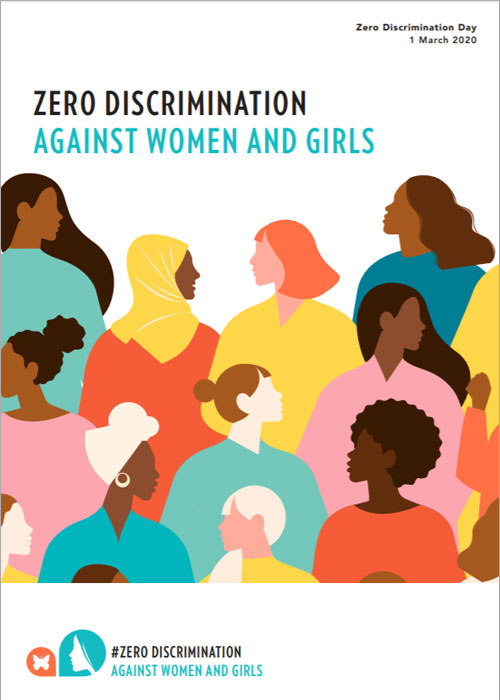
ZERO DISCRIMINATION AGAINST WOMEN AND GIRLS
On Zero Discrimination Day this year, UNAIDS is challenging the discrimination faced by women and girls in all their diversity and raising awareness and mobilizing action to promote equality and empowerment for women and girls.
Although some countries have made laudable progress towards greater gender equality, discrimination against women and girls still exists everywhere. Intersecting with other forms of discrimination—based, for example, on income, race, ethnicity, disability, sexual orientation or gender identity—these rights violations disproportionately harm women and girls. Ultimately, gender inequality affects everyone’s health and well-being. In many countries, laws that discriminate against women and girls remain in force, while laws that uphold women’s basic rights and protect them against harm and unequal treatment are far from the norm.
UNAIDS calls for zero discrimination against women and girls
GENEVA, 1 March 2020—On Zero Discrimination Day, which is commemorated every year on 1 March, UNAIDS is calling for an end to discrimination against women and girls and for equal rights, opportunities and treatment.
Despite progress in some areas, in 2020 coercive practices, discriminatory legislation and gender-based violence are just some of the human rights violations that are continuing to have a disproportionate impact on the lives of women and girls around the world. UNAIDS is highlighting areas where change is urgently needed: equal participation in political life; human rights and laws that empower; economic justice—equal pay for equal work; ending gender-based violence; provide health care without stigma or barriers; equal and free access to primary and secondary education; and climate justice.
As the Executive Director of UNAIDS, I lead the work of the United Nations to tackle AIDS. I’m also someone who has lost family members to AIDS. This is personal.
Both my own family experience and our collective experience at the United Nations have highlighted the same key lesson: the struggle to beat AIDS is inseparable from the struggle for women’s rights and from the struggle against all forms of discrimination.
AIDS can be beaten, but it will only be beaten if we take on the social and economic injustices that perpetuate it and spur more scientific innovations to address the real needs of women and girls and people living with and vulnerable to HIV.





